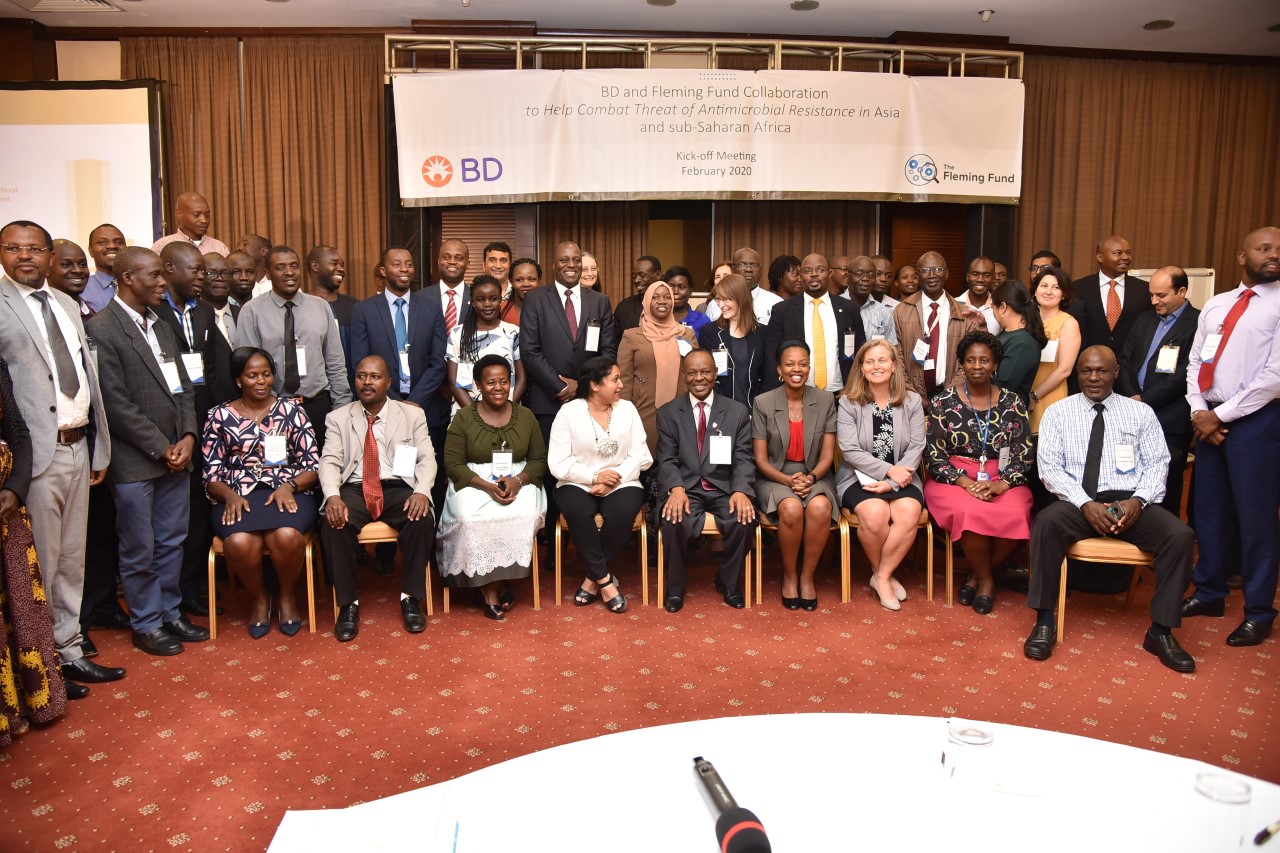advertisement
Uganda receives high tech medical equipment that slices diagnosis time by half
Uganda has received three High Tech pioneering laboratory machines to speed up the process of testing and treating patients for…

Uganda has received three High Tech pioneering laboratory machines to speed up the process of testing and treating patients for bacterial infections as part of a UK/Uganda partnership aimed at tackling drug resistance. The machines automate part of the laboratory tests that identify the bacteria causing a patient’s infection and can deliver results to doctors up to 18 hours quicker, saving critical time in the diagnosis of life-threatening conditions.
One of the machines, a mass spectrometer MALDI-TOF, is the first of its kind in Uganda and identifies bacteria in just two minutes, compared with 18-48 hours for conventional testing. The machines have been provided as a part of the Fleming Fund, a £265 million investment by UK Aid to tackle the growing threat of drug resistance in 24 low and middle-income countries around the world. The programme is managed by the UK Department of Health and Social Care in partnership with Mott MacDonald, the Fleming Fund Grant Management Agent.
Clinical Microbiologist for the Fleming Fund’s Management Agent, Mott MacDonald, Emmanuel Azore, while addressing participants at the BD and Fleming Fund, at the Kick start of four days meeting at Kampala Serena Hotel said: “Up until now, treatment in Uganda has been syndromic (according to symptoms), rather than based on laboratory testing or findings.
advertisement
This often results in misdiagnosis and can increase the risk of drug resistance if patients aren’t administered the correct medicines. These new machines, specifically the MALDI-TOF, will speed up testing results, reduce human errors and ensure that more junior microbiologists can conduct diagnostic tests with accuracy.”
This week, the equipment will be delivered to Uganda’s National Health Laboratory Service where staff will receive training on the MALDI-TOF, an automated blood culture machine and an antimicrobial susceptibility testing machine (which tests which drugs which are effective in treating a particular pathogen).
The Infectious Disease Institute, the Fleming Fund’s implementing partner in Uganda, is helping to facilitate the training, in collaboration with medical equipment supplier BD. IDI is also supporting the development of a national AMR surveillance strategy, a One Health national governance structure and equipment delivery in animal health laboratories.
advertisement
Uganda’s Minister of Health Dr Jane Ruth Achieng commended Development Partners, mainly Fleming Fund and DfID for their support to procure the High Tech Laboratory Equipment. She said infectious diseases are Uganda’s top Health threats, which are a hindrance to economic development. “A total of USD 4000 is currently used to treat one patient suffering from resistant Tuberculosis (TB) infection instead of USD 250”, she said.
According to Fleming Fund representatives at the meeting, 700,000 current numbers of people worldwide die from drug-resistant infections annually and 10 million numbers of people worldwide are predicted to die from drug-resistant infections annually by 2050. Fleming Fund points out that; resistance is a natural evolutionary phenomenon. It occurs when bacteria (or other microorganisms) come across antibiotics (or other antimicrobials) but evolve and adapt to survive the exposure.
The Fleming Fund works primarily through a portfolio of Country Grants, Regional Grants and Fellowship Scheme grants to deliver laboratory equipment, training and support for surveillance systems. The core aims of the Fleming Fund are to: Build partnerships across sectors, governments and organisations, equip countries to collect and use data on drug resistance, encourage clinicians and farmers to use antibiotics better, encourage governments to invest in tackling AMR for a sustainable future and encourage policy makers to make AMR a policy priority among others.